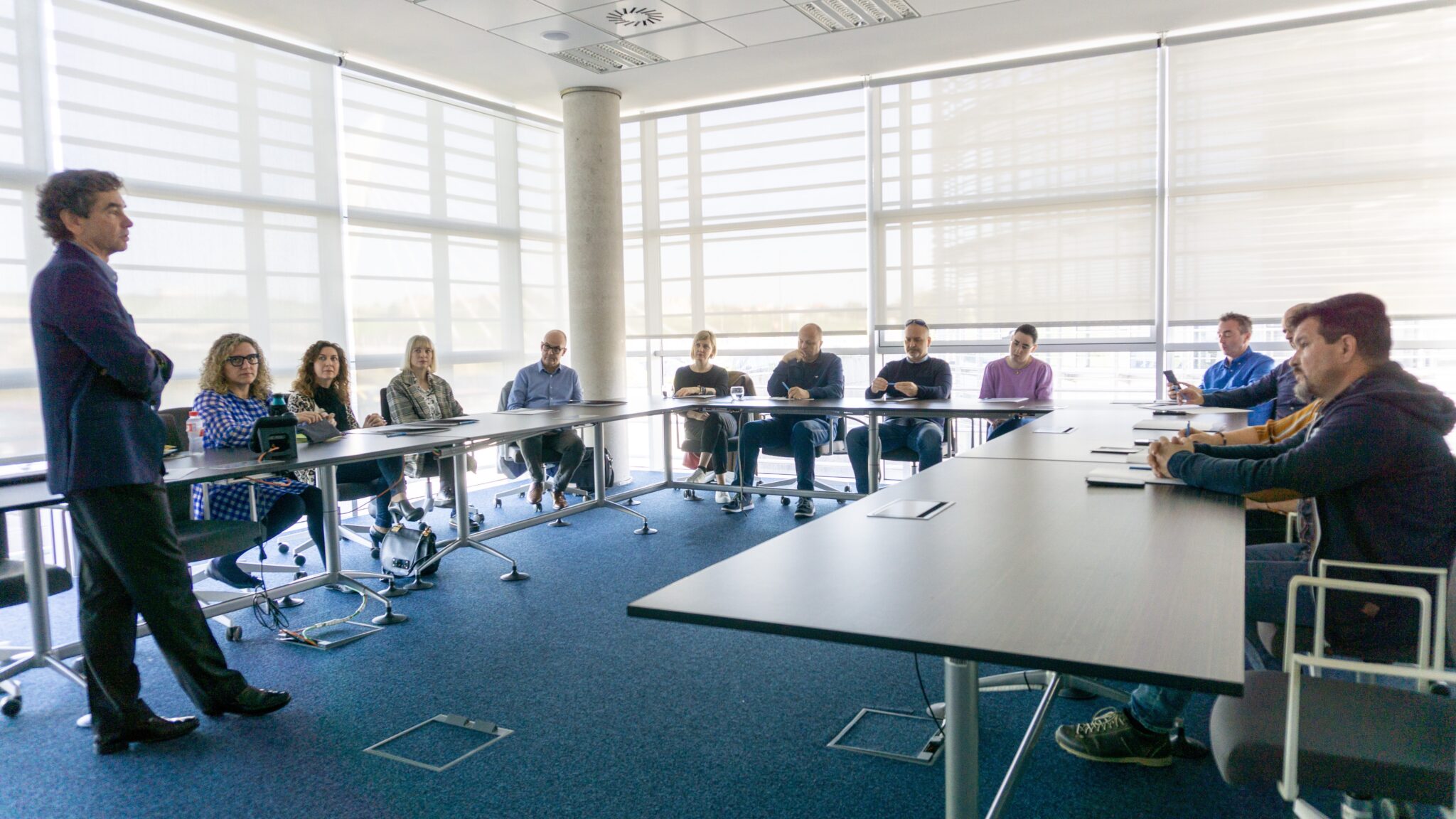IHCantabria received a visit from experts from the European CODIL project to promote regional innovation

Francisco Royano, Director of Technology Transfer of IHCantabria, reporting on the mission and projects developed by this research center, which is promoting innovation through technology
Representatives of the community partners of this project have exchanged experiences to improve their development tools, with the aim of attracting and retaining highly qualified professionals in Cantabria
The Environmental Hydraulics Instituteof Cantabria (IHCantabria) has received today the visit of a group of partners of the European project CODIL(Collaborative Innovation for Distributed Teams), in the framework of a series of activities carried out in Cantabria. This project has the participation of the Government of Cantabria, through the Ministry of Industry, Employment, Innovation and Trade.
Its main objective is to adapt innovation policies to the new distributed work models, promoting the development of technological competences and the support to highly qualified professionals.
During the week, representatives of the CODIL project partner institutions from six countries (Spain, Slovenia, Finland, Romania, France and Ireland) shared their experiences and best practices in a program that included working meetings and visits to local innovation initiatives. In particular, the visit to IHCantabria has allowed them to learn about the advances and projects of this center in scientific and technological innovation, focused on sustainability and the use of information technologies.
Tour of IHCantabria’s facilities
At IHCantabria, the CODIL project partners were received by the director of Technology Transfer of this center, Francisco Royano, who presented the mission and projects of the institute, in its effort to promote innovation through technology. Researcher Ana Silió-Calzada reported on some initiatives developed within IHCantabria, based on the use of remote sensing and numerical modeling, as well as on products of the European Copernicus program; while researcher Camilo Jaramillo Cardona, from the Coastal Engineering and Management Group, explained the scope of the CoastSnap citizen science project and on the use of the IH-SET tool, which helps to model coastal evolution.
Towards regional innovation at the forefront
The CODIL project, co-financed by the European Regional Development Fund (ERDF) through the INTERREG EUROPE program, is a collaborative network that will run until 2027, and seeks to strengthen the research and innovation policies of its participating regions. According to the Minister of Industry, Employment, Innovation and Trade, Eduardo Arasti, this cooperation is essential to create policies that respond to the new dynamics of digital innovation and attract knowledge professionals who contribute to the sustainability and vitality of the innovation ecosystem in Cantabria and the rest of Europe.
During this week, the group of partners also had the opportunity to visit the Xtela building of the Scientific and Technological Park of Cantabria (PCTCAN) and the facilities of the AMPROS Association, where social inclusion and innovation projects are explored, showing Cantabria’s commitment to technology at the service of society.



